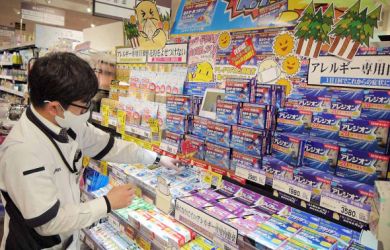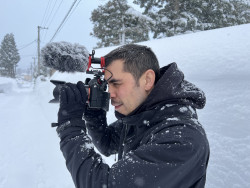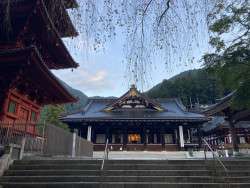
November 14, 2013
November 15, 2013
Mildly funny robots, threatened fugu and threatening bears
By Metropolis
Originally published on metropolis.co.jp on November 2013
CRACKING UP
- Students at Konan University in Kobe have created a pair of robots that can perform as a manzai comedy team. Though a professor involved with the project admits, “they are often not very funny.”
- A photo believed to be the last ever taken of famous dog Hachiko during its lifetime has been put on display at the Shirane Memorial Folk and Literature Museum in Shibuya.
- Officials at the NPA say the number of stalking cases involving elderly people has nearly quadrupled during the past decade.
- Among the regulations to be relaxed ahead of the 2020 Tokyo Olympics are those on “high-rise apartments… [and] rented accommodations to be used as hotels for tourists.”
LITERARY DARLINGS
- A hearing-impaired man from Chiba has written a manga about his love affair with a mentally handicapped woman. The comic is called My Girlfriend is Developmentally Disabled: A Slap-Bang Diary of a Disabled Couple.
- The Tokyo District Court threw out a libel suit filed by Uniqlo against the publisher of a book whose author claimed that the company forces factory workers and retail staff to “toil under harsh labor conditions.”
- Among other allegations, the book—called The Glory and Disgrace of the Uniqlo Empire—contends that a Japanese store manager was forced to work 300 hours a month.
- Fewer than half the people who responded to a Yomiuri Shimbun poll said they had read a book during the previous month.
NEWS FROM THE ANIMAL KINGDOM
- Environmental officials say overfishing is threatening a species of blowfish known as tennen torafugu, which is “prized as a delicacy by consumers.”
- Meanwhile, this year’s haul of oysters in tsunami-hit Miyagi is expected to recover to around 40 percent of pre-disaster levels.
- It was reported that the number of koalas at zoos in Japan has dwindled from a peak of 96 in 1997 to just 40 today.
- After a series of incidents involving local wildlife, authorities in the Shiretoko district of Hokkaido issued a warning to tourists to keep their distance from brown bears.
COMING AND (NOT) GOING
- Tourism officials announced that the number of Chinese visitors to Japan in September marked a year-on-year rise for the first time in 12 months.
- Authorities at the education ministry say the number of high school and university students who studied abroad in 2010 dropped to 58,060, compared to a high of 82,945 in the peak year of 2004.
- Japanese and Vietnamese authorities signed an agreement to “to cooperate in the development of environmentally friendly cities.”
- Officials at the labor ministry agreed to increase the benefits of full-time employees who take childcare leave to 67 percent of their salaries, from the current 50 percent.
WHY SO GLUM, CHUM?
- A survey by a suicide-prevention group found that 21 percent of college students felt like they “wanted to die” during job-hunting this year.
- Among the online search terms that have become popular since the March 2011 disaster are “emergency rations,” “earthquake insurance” and “earthquake-resistance reinforcement,” according to a newspaper study.
- Researchers at Hiroshima University say that men who entered the city of Hiroshima on the day the atomic bomb exploded in 1945 were more likely to die of cancer than those who arrived three days later.
- Bottom Story of the Week: “Century-old Silver Spoons from Nagasaki Hotel Found in Nara” (via Mainichi Japan).
Compiled from reports by AP, Japan Today, The Japan Times, Jiji, The Tokyo Reporter, The Mainichi, The Japan News, AFP, Reuters and Kyodo








